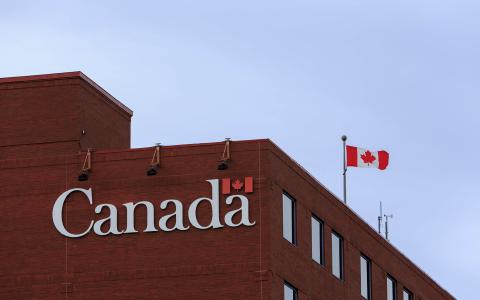
Morgan Stanley has identified 16 stocks that are positioned to withstand the impact of tariffs on imports from Canada, Mexico, and China, set to take effect on Tuesday. These companies demonstrate pricing power, diversified supply chains, or strong market positions that could help sustain performance despite higher costs.
Levi Strauss (LEVI) and Ulta Beauty (ULTA) are among the highlighted stocks. Levi benefits from a diversified supply chain, sourcing products from China, Bangladesh, Vietnam, India, and Mexico. With three of these countries unaffected by tariffs, Levi has the flexibility to navigate trade disruptions. In its latest financial report, the company stated that tariffs are unlikely to significantly impact its business, noting that less than 1% of its U.S. jeans inventory originates from China. Imports from China and Mexico collectively account for just 15%-20% of its U.S. inventory.
Ulta Beauty faces a more substantial risk from tariffs. In its 2024 annual financial report, the company acknowledged that tariffs could materially affect operations. Additionally, Ulta does not maintain long-term supply contracts, and shipping data indicates it imports from China and the UK, adding to potential cost pressures.
Analyst Ratings: Levi and Ulta
Despite tariff concerns, both Levi and Ulta have promising stock projections. Barclays rated Levi as “overweight” in January with a 2025 price target of $24. However, Morgan Stanley issued a more cautious rating of “even” and set a lower target of $18.
“There are risks to LEVI, both external and internal, but we believe there is opportunity moving forward,” stated Barclays analyst Paul Kearney.
One of Levi’s primary challenges is the strength of the U.S. dollar, which could impact international sales, as noted by the company’s CEO in a recent investor call. A FactSet survey projects Levi’s stock could rise to $20.62, a 20% increase from Monday’s closing price.
Ulta’s stock has a more optimistic outlook, with analysts setting an average price target of $445 per share.
“ULTA remains a strong, durable business in a dynamic and attractive category. As the beauty industry continues to grow, ULTA’s top line should follow,” noted Morgan Stanley analyst Simeon Gutman.
Market Impact of Tariffs
The S&P 500 fell 1.76% on Monday following President Donald Trump’s statement that there was “no room left for Mexico or for Canada” to avoid tariffs. If implemented, imports from Canada and Mexico will face a 25% levy, while Chinese goods will be hit with a 20% charge.
Industries with significant exposure to these tariffs include oil, automobiles, and auto parts, as these represent major imports from Canada and Mexico. In 2023, total imports from these two countries were valued at $900 billion. The White House stated that energy imports from Canada would face a lower 10% tariff.
Canada announced retaliatory measures, imposing a 25% tariff on $21 billion worth of U.S. exports, with the potential to expand countermeasures to $107 billion in trade within 21 days if the U.S. maintains its stance. China also announced retaliatory tariffs ranging from 10% to 15% on key U.S. agricultural exports, including soybeans and corn.
Stocks with Tariff Resilience
Morgan Stanley compiled a list of 16 stocks it considers more insulated from tariff-related pressures. These stocks, despite recent market declines, exhibit strong consumer demand and operational resilience.
The full list includes:
- Ulta Beauty (ULTA) - Albertsons Companies (ALI) - Dexcom (DXCM) - BJ’s Wholesale Club Holdings (BJ) - Kroger (KR) - Dollar General (DG) - Nutanix (NTNX) - Keysight Technology (KEYS) - Five9 (FIVN) - Vail Resorts (MTN) - Planet Fitness (PLNT) - Lifetime Group Holdings (LTH) - IBM (IBM) - United Rentals (URI) - Tapestry (TPR) - Levi Strauss (LEVI)
For wealth advisors and RIAs, these insights highlight opportunities to navigate trade uncertainty. Investors seeking resilient equities may consider companies with strong pricing power, diversified supply chains, and stable consumer demand.



